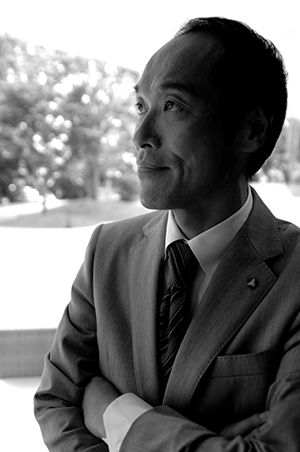 Politicians are typically staid, predictable types who are happy to forgo any hint of personality for the sake of toeing the party line. And so it is rather refreshing to meet Miyazaki governor Hideo Higashikokubaru, a man who possesses an uncanny knack of being able to surprise.
Politicians are typically staid, predictable types who are happy to forgo any hint of personality for the sake of toeing the party line. And so it is rather refreshing to meet Miyazaki governor Hideo Higashikokubaru, a man who possesses an uncanny knack of being able to surprise.
The former entertainer surprised everyone in January, comfortably beating four candidates (including former Forestry Agency Director General Hidesaburo Kawamura) to be elected governor of Miyazaki and assume the post vacated by former Governor Tadahiro Ando, who was arrested after resigning over bid-rigging allegations.
He then attempted to breathe some fresh air into the governor’s post by refusing to live in the lavish official mansion and offering his defeated rival the deputy governor’s post. (He has since withdrawn both proposals.)
In spite of his lack of political experience, he then surprises Japan’s unforgiving media pack by managing to deal successfully with a spate of issues that threatened to rain on his parade, including an outbreak of bird flu and government cutbacks on his local subsidies.
He now surprises everyone who has gathered at ELEMENTS in Toranomon for the allotted interview and photo shoot by arriving almost 30 minutes ahead of schedule.
“He’s very busy, explains his press secretary while the governor is settling into his chair on the terrace outside the restaurant in preparation for the interview. “It’s always one meeting after another.
Clad in a light-gray suit with a striped tie, the Miyazaki governor looks every inch to be a politician with plenty of clout. And apart from the frequent smiles, there is much in his demeanor to suggest that the first eight months in office have taken their toll on the former comedian and erased the softer image he had enjoyed when he was a well-known TV personality.
“Some people still see me as an entertainer, Higashikokubaru says, before correcting himself ever so slightly. “I mean to say, the image of a TV personality is too long-lasting to be erased in such a short time. People have been questioning what a mere entertainer such as myself can really do for them.
Double takes such as this have become a necessary precaution after being elected into office as he has fought to keep a lid on his comic roots. As an entertainer, he never needed to worry about saying the wrong thing at the wrong time. Now, however, the situation couldn’t be more different.
“This kind of life has been extremely stressful, he says. “I have attempted to crack as many jokes as before even on official occasions such as ceremonies and governmental duties. When theaudience does not catch onto my jokes, I get uptight.
In this regard, at least the experiences he has under his belt as an entertainer have kept him in good stead.
“I am capable of sensing the atmosphere or ambience (of a situation) because of my past experiences as an entertainer, he says. “I am sometimes dying to crack a joke and cannot do so because of the nature of the TV program I am appearing on. If I crack a joke at that particular moment, I know it will lower the dignity of me and my prefecture because I am appearing as the representative of the prefecture.
Proving His Worth
Higashikokubaru, 50, believes his electorate has slowly come around to acknowledge the work that he is doing. Since his January election, the governor has made significant progress on many of the reforms he campaigned on and, in doing so, received an increasing level of support from those who were initially suspicious of him.
According to an article that was published in the Yomiuri Shimbun on July 19 earlier this year, Higashikokubaru’s approval rating stood at 90.7 percent after six months in office, making him by far the most popular governor in the country. His disapproval rating was a paltry 3.1 percent. By contrast, Tokyo Governor Shintaro Ishihara, another celebrity who romped home for a third term in April, was ranked 24th, and had an approval rating of just 57.1 percent.
Higashikokubaru, who ran under his stage name, Sonomanma Higashi, was surprisingly candid when asked to explain his initial interest in politics.
“I had a vague idea around 1998 and 1999 when I was forced to think about my own life when my show-business career was suspended, he says. It was at that time Higashikokubaru fell out of favor with TV studios in Japan after being involved in a number of high-profile incidents, including one in which a young girl of just 16 years-old named him (or rather Sonomanma Higashi) as her customer at a club where female employees offered sexual services. Higashikokubaru is said to have claimed he did not know the girl was a minor, but the affair took its toll on the television veteran.
“When I was suspended, I was forced to sit down and rethink the direction of where I was headed, he says, looking back on those days of woe and pain. “I considered more than one option such as entering politics, or getting involved with non-profit and non-government organizations.
His decision to become involved politics was not influenced by role models such as Abraham Lincoln or John F. Kennedy, and for the most part he did not even have defined political views on”I owe what I am to my hometown, which nurtured me,” he says. “Tokyo made a man out of me. I became a full-fledged member of society there.”
Although he enjoyed living in Tokyo, his life changed upon undertaking introductory courses in social welfare at Waseda University in 2000.
“I had to submit a report,” he says, “and so I decided I was going to address the issue of nursing. There were numerous aspects I could have covered, but I decided that I should cover Miyazaki because I was born and bred there.”
His report concluded by stating that Miyazaki lacked basic nursing services when compared to other prefectures. The southeastern Kyushu prefecture also came up short on indices related to trade and industry. But instead of just theorizing about possible humdrum solutions, he made a decision to take positive action.
“I had to do something about it,” he notes in a decidedly local accent.
On the Campaign Trail
After deciding to enter the gubernatorial race, he chose to run as an independent candidate and shun the advantage of running under the umbrella of an established political organization. Instead, he embarked on a grassroots campaign, and won an astonishing level of support from young people and women not affiliated with any party. He pledged to scrap the designated bidding system for public works projects and mete out harsh punishment for government employees involved in rigging bids. It was a campaign pledge that pushed the right buttons with many disenchanted voters in the electorate, who were turning their backs on politics following the outgoing governor’s shady practices.
With 266,807 people deciding he was the best candidate available to turn around the prefecture’s flagging fortunes, he won the election by a staggering 70,000 votes. Higashikokubaru had been handed a sizeable mandate by the people of Miyazaki to revive the prefecture, and promised to make good on his promises. In the beginning, however, there were signs that he was perhaps not quite up to the task and the odd slip of the tongue was pounced on by a hungry press core who were more than happy to hang the inexperienced governor out to dry.
In an April 2 speech to welcome new officials, for example, Higashikokubaru referred to the anti-influenza drug Tamiflu as controversial due to the abnormal behavior displayed by a number of children who took the drug, quipping, “I might slide into abnormal behavior or remarks today.” He had come down with the flu and had taken the drug that morning.
As a result, the local government was flooded with complaints. In his defense, he said the media took the quote out of the context, and explained he had intended to make fun of a rhyme that had appeared in a photojournalism magazine “Influ, Tamiflu, Higashikokubaru” but the media failed to spot the connection between the two and portrayed him as being flippant. The phrase had grown wings.
Then, on April 16, Higashikokubaru questioned the necessity of regular press conferences, a notion that incensed reporters nationwide. (Remember the gnashing of teeth that was reported in daily newspapers over former Prime Minister Abe Shinzo’s decision to limit press conferences to one per day at the start of his term?)
“I have always thought that it is not necessary to have a press conference on a regular basis. This thought popped out of my mouth in words before I knew it,” he says of the incident. “My remark caused a stir and was interpreted as saying I was questioning the existence of the press club full stop. Reporters in the press club became very uptight.
“Knowing that every comment I make has the potential to create conflict makes it even harder for me to make any comment,” he says. “The nationwide publicity I receive has meant that even trivial statements I make take on as much significance as comments made by a cabinet minister. Even statements made in private speeches become public.”
Asked to highlight his own inadequacies, Higashikokubaru admits his entertainment background hasn’t really helped when it comes down to debating core issues. “I cannot use political or official jargon very well, which gives others the impression that I am being fluffy and not serious enough,” he says. “Even if I am saying the same thing as other seasoned politicians, I tend to come across as being less serious than people think I should be. My messages are not getting through in a compelling way.”
He also says his background in television makes it difficult to go out and relax in the public eye. “When I enter any restaurant now, it changes the entire ambience,” he says, adding that he finds such situations to be very stressful. “People beg me to shake hands or have photos taken together. I know this will annoy other customers.”
He’s Only Just Begun
It’s usual to assess a politician’s progress once the traditional 100-day honeymoon period has passed after an election. When asked to rate the first 100 days of his own term, he gives himself a modest 50 out of 100 albeit reluctantly, as he does not like to indulge in points-scoring.
“I am giving this assessment on the premise that it is impossible to make an assessment after just three months of four-year term,” he says. “The reforms have just begun.”
On a typical day, he gets up around 7am, goes to work about 8:30am and works on his official duties until around 11 o’clock in the morning. His afternoons and evenings are usually filled with public engagements. It’s a busy schedule that doesn’t leave much downtime for personal activities, although it is considerably less hectic than when he was first elected. During his first two months in office, he was only able to sleep two or three hours every night. These days, he is more likely to get around five or six hours.
The governor says he likes to wind down by relaxing in his home, although he claims that since taking office in January he has not watched anything on television except the news.
“I’m not familiar with any new TV personality because I have not seen entertainment programs at all since I took the helm,” he notes.
Higashikokubaru has worked tirelessly to see through his reform pledges since being elected and has taken no days off except for three days in March when he was hospitalized with the flu. Asked what he would do if granted a vacation, he doesn’t need much time to stop and think about an answer.
“I’d like to jog and to study,” he says. “Then I’d probably want to drink. I’d like to indulge myself in these activities for a week. I’d want to study about the government from scratch. I am now spending my time just for output. There’s been no time for input, which will eventually deplete my drawers of knowledge.”
Higashikokubaru was elected into office on the back of a campaign pledge to raise the profile of Miyazaki, and there’s no denying he has been successful on this front. And yet he concedes that his promotional efforts over the past eight months or so haven’t always pleased everyone in the prefecture.
“I have been accused of promoting Miyazaki too aggressively and of appearing on TV too often,” he says. “Some people say that if I do it too much, it will degrade the dignity of the prefecture. In addition, my excessive promotion of (Miyazaki) mangos created an increased demand that surpassed production capacity, which eventually led to a price hike. My efforts turned out to be counterproductive in this respect.”
Nevertheless, Higashikokubaru has achieved a fair amount of success in the pursuit of his campaign pledges. He has taken concrete steps to regain the electorate’s trust in the wake of his predecessor’s bid-rigging activities and subsequent fall from grace, making a personal appeal to local officials on his staff to come forward if they had any information that might be helpful in resolving the case. Once one person came forward, others followed suit, and the governor has since managed to uncover a slush fund totaling ´200 million. He also believes he has laid the necessary groundwork to prevent another outbreak of bird flu from occurring in the province this winter.
But whatever happens, he vows never to return to the entertainment business.
“If I ever leave politics, I would like to become a commentator or return to school to study about local government politics,” he says. “I know I have an advantage in trying my hand at something else after I leave office because of my fame. However, I still have to prove myself in the reforms I am now working on.”
All in all, Governor Higashikokubaru has successfully managed to keep the publicity spotlight on his tiny prefecture and sidestep several treacherous pitfalls along the way.
Can we expect any more surprises from the comedian-turned-governor? Like former US President Ronald Reagan (who was also an actor before he entered politics), would Higashikokubaru even consider putting himself in the running to become prime minister of Japan?
These final questions are met with a simple nod of the head and while the smile that accompanies the gesture implies he could be joking, sonality suggetes there may be some truth to it after all.
Story by Kazumoto Ohno
From J SELECT Magazine, November 2007

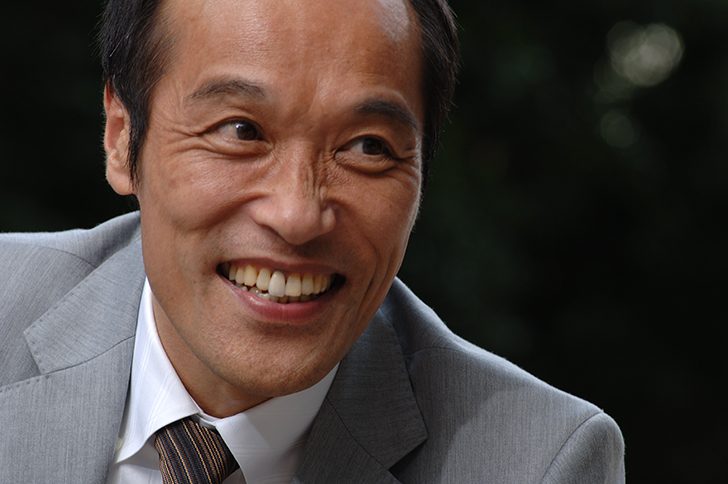


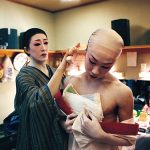
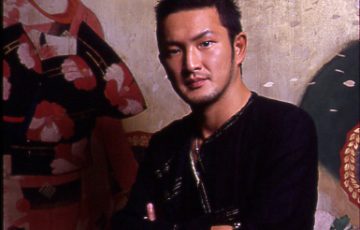
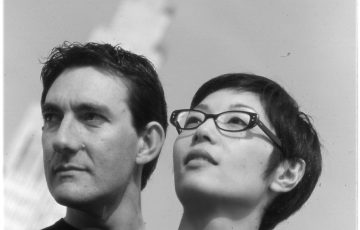
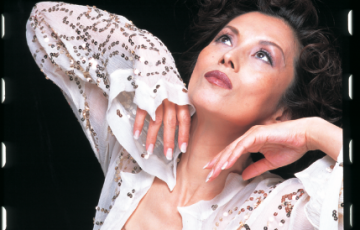
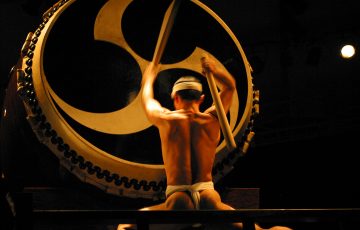
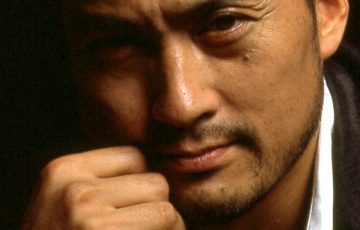
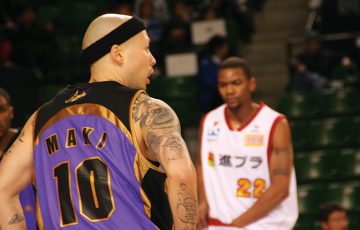
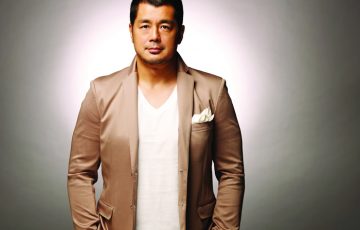
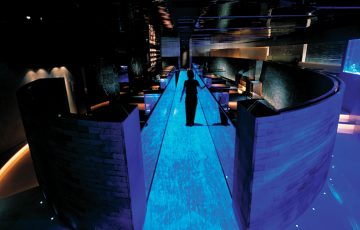


Recent Comments